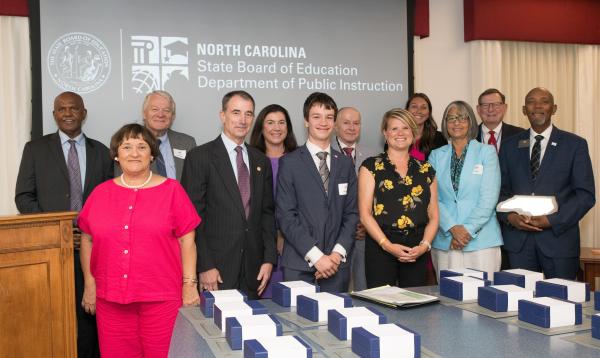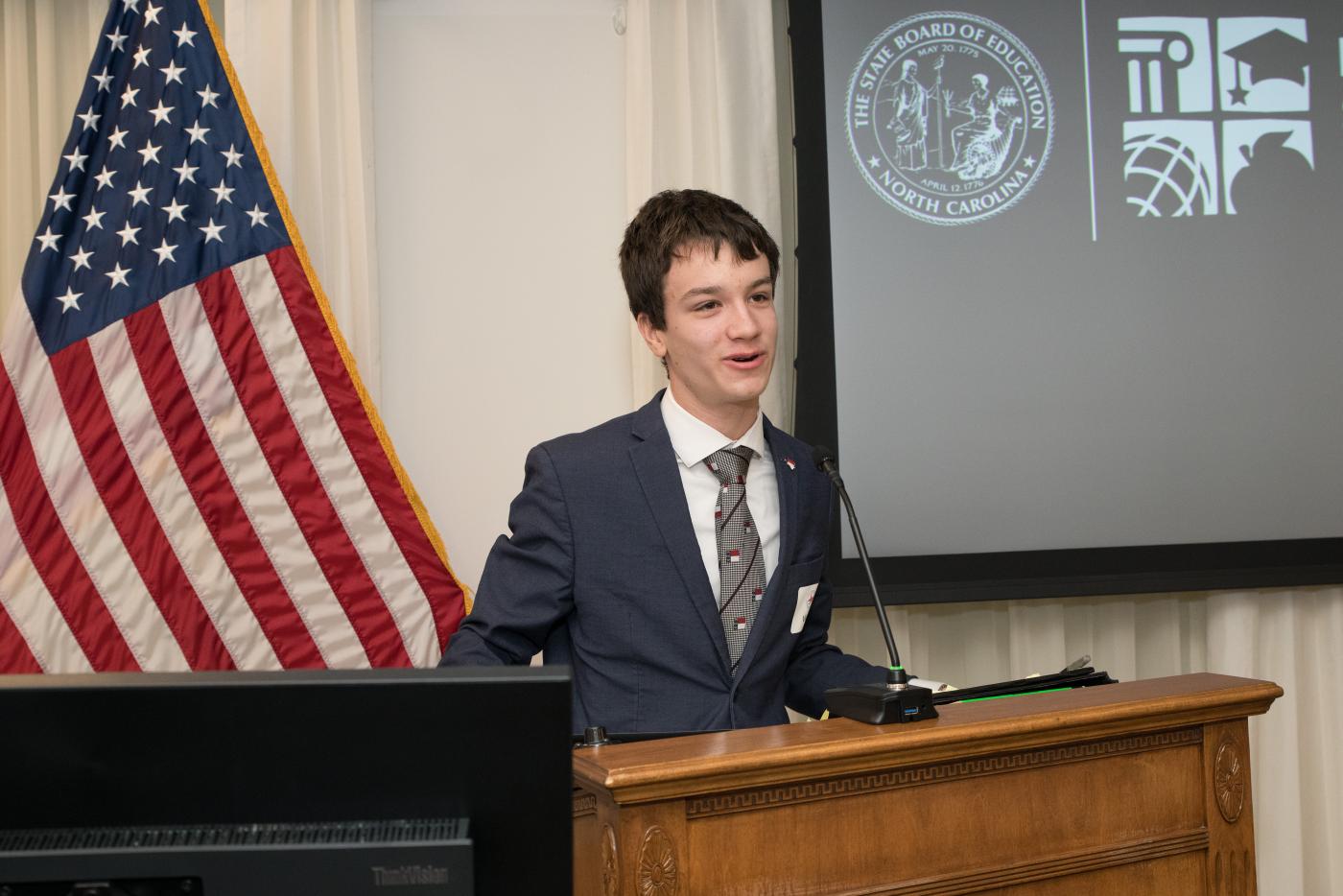Ian House is one of two student advisors to the State Board of Education. His term began in August 2024 and will conclude in June 2026. State Board livestreams and recordings of previous meetings are available on NCDPI’s Public Meetings YouTube channel.
NCDPI: What are your responsibilities as a student advisor to the State Board of Education? How did you become interested in this role?
House: As a student advisor to the North Carolina State Board of Education, my responsibility, as prescribed in North Carolina General Statute 115C-11, is to “participate in State Board deliberations in an advisory capacity.” In pursuing this mission, I attend all of the State Board meetings and raise my voice when I observe an issue requiring a student perspective. Outside of the board table, I strive to listen to the concerns of other public school students so my perspective can be as representative as possible to the diverse needs of North Carolina schools. I had the privilege to be appointed by former North Carolina State Superintendent of Public Instruction Catherine Truitt to the role in the spring of 2024.
Why do you think it’s important to have student voices at the table?
Every decision that is made in education policy fundamentally affects students, so allowing student voices at the table ensures that choices made by policymakers provide for quality instruction for all. During my service to the State Board, I have spoken on many issues, including the components of high school transcripts. In one board meeting, I used the experiences of my peers to shed light on how community college classes are not always the same rigor as other advanced coursework opportunities, yet these opportunities are still counted for the same weight on a student’s grade point average. My point echoed a need to reexamine how different classes are weighted.
Another issue with transcripts is class rank. On multiple occasions, using input from my peers, I spoke on the dangers of class rank and the need for it to be eliminated from the use of high school transcripts. As long as the use of rankage is required in statute though, there is little the State Board can do. Thus, I presented an alternative solution in which students are weighted in a decile or quintile scale.
What has been the most rewarding part of being a board member so far? What has been challenging?
From the start of my tenure as an advisor on the State Board, I felt welcomed by my fellow board members and advisors, along with the dedicated staff at the NC Department of Public Instruction. Interacting and getting to know these outstanding public servants is the most rewarding part of being an advisor to the board. The position I serve in is a true honor, but it does come with a commitment. Learning how to balance my scholastic and extracurricular obligations has been challenging at times. However, through the support of my school’s administration and teachers, I am able to effectively manage my schedule.

How has this experience shaped your future plans and/or your thoughts about education?
Before my service on the board, I had a vague understanding of NCDPI and the State Board, along with school districts. However, like many others, I simply went to school each day and did not think much about what made schools in North Carolina function. However, my tenure on the State Board has led me to come to understand the important role past and current leaders, dedicated staff at a state and district level, educators and well-crafted policies play in the role of safeguarding the right of every North Carolina child to a sound, basic education. My passion for North Carolina’s government, politics and history is further lit from this experience, and I am more motivated to stay involved in state government.
While there are only two student advisors on the board, there are myriad ways students across the state can use their voice to make a difference. What would you say to your fellow North Carolina students to inspire them to get involved? What are some easy ways that students can share their thoughts and advocate for change?
Former Governor Terry Sanford once told students that the benefits of an education are immense, but can only be achieved if students “provide the ‘get-up and go.’” This rings true to today, and for students to enjoy the full benefits of an education they must voice and advocate their needs to those who govern our instruction. There are many ways students can advocate, including speaking up at their local school meetings, writing to their state legislators, contacting school building leaders, serving on district superintendent student advisory councils and organizing clubs at their schools formed around addressing a particular issue.
You’re a senior - congratulations! What’s next for you?
After high school I look forward to pursuing higher education and continuing to learn more about North Carolina’s government, politics and history through participating in meaningful internships, community service and other opportunities that come along.
Is there anything else you want to share?
I am excited for the “Achieving Educational Excellence” plan and cannot wait to see all the good work to come from striving to make North Carolina schools the best in the nation.

